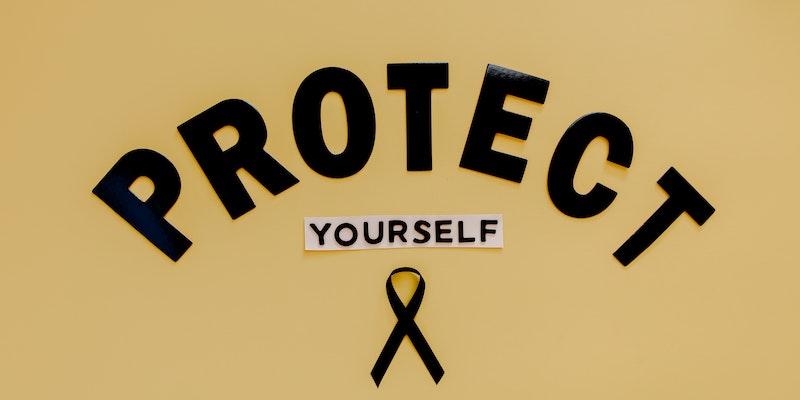Advertisement
Skin Cancer: Four Proactive Steps to Stay Protected
Nov 06, 2023 By Madison Evans
Many Americans discover skin cancer daily, making it the most common cancer. You can significantly reduce your risk by taking critical preventative measures. Here are four essential skin cancer prevention tips.
1. Gear Up to Shield Your Skin
When we consider the dangers posed, it's clear they relentlessly aim for our skin's vulnerability. Ensuring you're suitably equipped against this persistent enemy is paramount. As Dr. Nandini Kulkarni and several other experts stress, the clothes and protective wear we choose serve as our primary shield against these harmful rays. In our battle against the types of skin cancer, what we wear can be a game-changer. Let’s explore the fundamental protective measures we can easily integrate into our daily routine.
Slip on a shirt
Your skin, especially areas frequently exposed to the sun, is constantly threatened by UV radiation. By simply wearing a shirt, you drastically reduce the skin's exposure. Over time, this can significantly lower the risks associated with skin cancers. Remember, every time you choose to cover up, you're actively minimizing potential harm to your skin.
Slop on sunscreen
It's not just a summer thing. Applying sunscreen should become as habitual as brushing your teeth. Sunscreen doesn't just prevent tanning; it acts as a frontline defense, halting those UV rays from causing cellular damage. Research has consistently highlighted how regular sunscreen application can be instrumental in preventing various types of skin cancer. Always ensure you're using a broad-spectrum sunscreen, paying attention to the SPF value, and providing even application.
Slap on a hat
A hat isn't just a fashion statement. Beyond its aesthetic appeal, a hat, especially those with broad brims, provides a functional purpose. It safeguards the face, neck, and ears, often overlooked yet highly susceptible to sun damage. A hat offers dual benefits - while shielding from direct sunlight, it also acts as a barrier against UV radiation. Especially in peak summer or midday, when the sun is at its zenith, a hat can be your skin's best friend, safeguarding against potential signs of cancerous moles.
Wrap on sunglasses
We often neglect our eyes and the delicate skin around them when considering sun protection. However, prolonged UV exposure can lead to conditions affecting the eyes and increase the risk of skin cancers around them. Sunglasses, particularly those offering UV protection, are essential. They serve as a barrier, absorbing and reflecting harmful UV rays, thus preventing them from causing harm. Each time you step out, ensure your eyes are well protected, minimizing risks and ensuring overall eye health.
2. Sunscreen Selection and Application

Sunscreen stands as a formidable barrier between our skin and the harmful effects of the sun. Making the right choice in sunscreen is equivalent to making a proactive decision in health. While many may be swayed by attractive packaging or familiar brands, the protective ingredients genuinely matter.
The sun protection factor, known as SPF, should be the primary focus when shopping for sunscreen. This factor determines how well the sunscreen will guard against the sun’s damaging rays. A minimum SPF 15 broad-spectrum sunscreen that protects against UVA and UVB rays is ideal for daily use.
A more resilient option is necessary for those planning to spend extended periods outside. Always opt for a water-resistant, broad-spectrum sunscreen with an SPF of 30 or above. This ensures maximum protection during outdoor activities when sun exposure is at its peak.
Sunscreen requires careful application to work. Not a one-off. Apply sunscreen 30 minutes before leaving. This gives the skin ample time to absorb it. Moreover, as the day progresses, remember to reapply every two hours. This frequency should increase if one engages in activities that induce sweating or involve water, like swimming.
3. Steer Clear of Tanning Beds
The allure of a bronzed complexion might seem tempting, but the risks associated with indoor tanning far outweigh the aesthetic appeal. Tanning beds, often marketed as a safer alternative to sunbathing, are far from benign. They are a hotbed for increasing susceptibility to various skin cancers.
Tanners, especially those under 35, have a much higher risk of melanoma. Melanoma, one of the most aggressive skin cancers, can kill if not detected early. An acquired tan may fade, but its effects can last a lifetime.
Dr. Kulkarni, a prominent figure in the medical community, has repeatedly stressed the hazards of indoor tanning. In her words, no tan, whether achieved outdoors or indoors, can be classified as safe or even remotely healthy. A few startling facts can shed light on this grim reality: Many skin cancers diagnosed in the U.S. can be directly traced back to tanning bed usage. This is a harrowing realization, considering many's casual attitude towards these machines.
4. Regular Skin Check-ups

Routine skin check-ups are essential in maintaining optimal skin health. By making them a consistent part of your health routine, you're taking a proactive stance toward early detection of potential skin issues, including types of skin cancer. Check-ups can be instrumental in spotting signs of cancerous moles early on, offering a higher likelihood of successful treatment. Melanoma, one of the skin cancers, presents specific signs one should be aware of:
Asymmetry
A simple way to check a mole is by assessing its symmetry. If one half doesn't mirror the other, it could cause concern.
Border
Take note of the mole's edges. If they appear uneven or jagged, it's a red flag.
Color
A mole with multiple colors or uneven shades could be problematic. A healthy mole typically has a uniform color.
Diameter
Any mole more prominent than 6 millimeters, roughly the size of a pencil eraser, should be monitored.
Evolution
Over time, if a mole changes in size, shape, or color, it’s crucial to take note and consult a professional.
Conclusion
Awareness about the types of skin cancer and recognizing the signs of cancerous moles is fundamental in skin health and cancer prevention. The guidance offered by these four essential tips can significantly reduce the risk of skin issues. By faithfully following these steps, not only can one decrease the possibility of facing skin cancers, but they can also foster better skin health in general.







